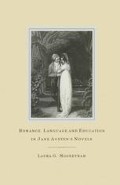Abstract
The story of Emma Woodhouse, ‘handsome, clever, and rich’ (p. 37), is that of a woman whose cleverness evolves into wisdom. Emma’s cleverness manifests itself initially in wit and emotional coldness; her eventual wisdom displays itself in an alliance of understanding with feeling. Austen’s model for wisdom — and Emma’s — is Mr. Knightley. Sixteen years Emma’s senior, he has stood in loco parentis to her since her mother’s death, when Emma was five. He is the only figure in her life capable of offering her just criticism. Unlike Henry Tilney or Edmund Bertram, Mr. Knightley is a morally responsible Pygmalion figure. In other words, Mr. Knightley’s efforts to educate Emma are not muddied by unacknowledged selfishness. He not only gives Emma full credit for those virtues and abilities which she does possess but also refuses to view his role as moral exemplar with false pride. Furthermore, Mr. Knightley is not blind to his own faults, few though they are, for he recognizes both his jealousy of Frank Churchill and the inhibitory effect such jealousy has on his willingness to communicate his feelings. Unlike Emma, who plays a self-absorbed Pygmalion to Harriet’s Galatea, Mr. Knightley never allows his status as moral guide to lead to blindness to his own faults.1 Austen is therefore never ironic when she is dealing with Mr. Knightley’s criticisms of Emma; she feels that they are just and unsullied by egotism.
Access this chapter
Tax calculation will be finalised at checkout
Purchases are for personal use only
Preview
Unable to display preview. Download preview PDF.
Notes
See Wayne Booth, The Rhetoric of Fiction (University of Chicago Press, 1961) p. 256.
Christopher Gillie, A Preface to Jane Austen (London: Longmans 1974), p.130.
See W. A. Craik, Jane Austen: the Six Novels (London: Methuen, 1965) pp. 127–8.
Author information
Authors and Affiliations
Copyright information
© 1988 Laura G. Mooneyham
About this chapter
Cite this chapter
Mooneyham, L.G. (1988). The Double Education of Emma. In: Romance, Language and Education in Jane Austen’s Novels. Palgrave Macmillan, London. https://doi.org/10.1007/978-1-349-09242-0_5
Download citation
DOI: https://doi.org/10.1007/978-1-349-09242-0_5
Publisher Name: Palgrave Macmillan, London
Print ISBN: 978-1-349-09244-4
Online ISBN: 978-1-349-09242-0
eBook Packages: Palgrave Literature & Performing Arts CollectionLiterature, Cultural and Media Studies (R0)

